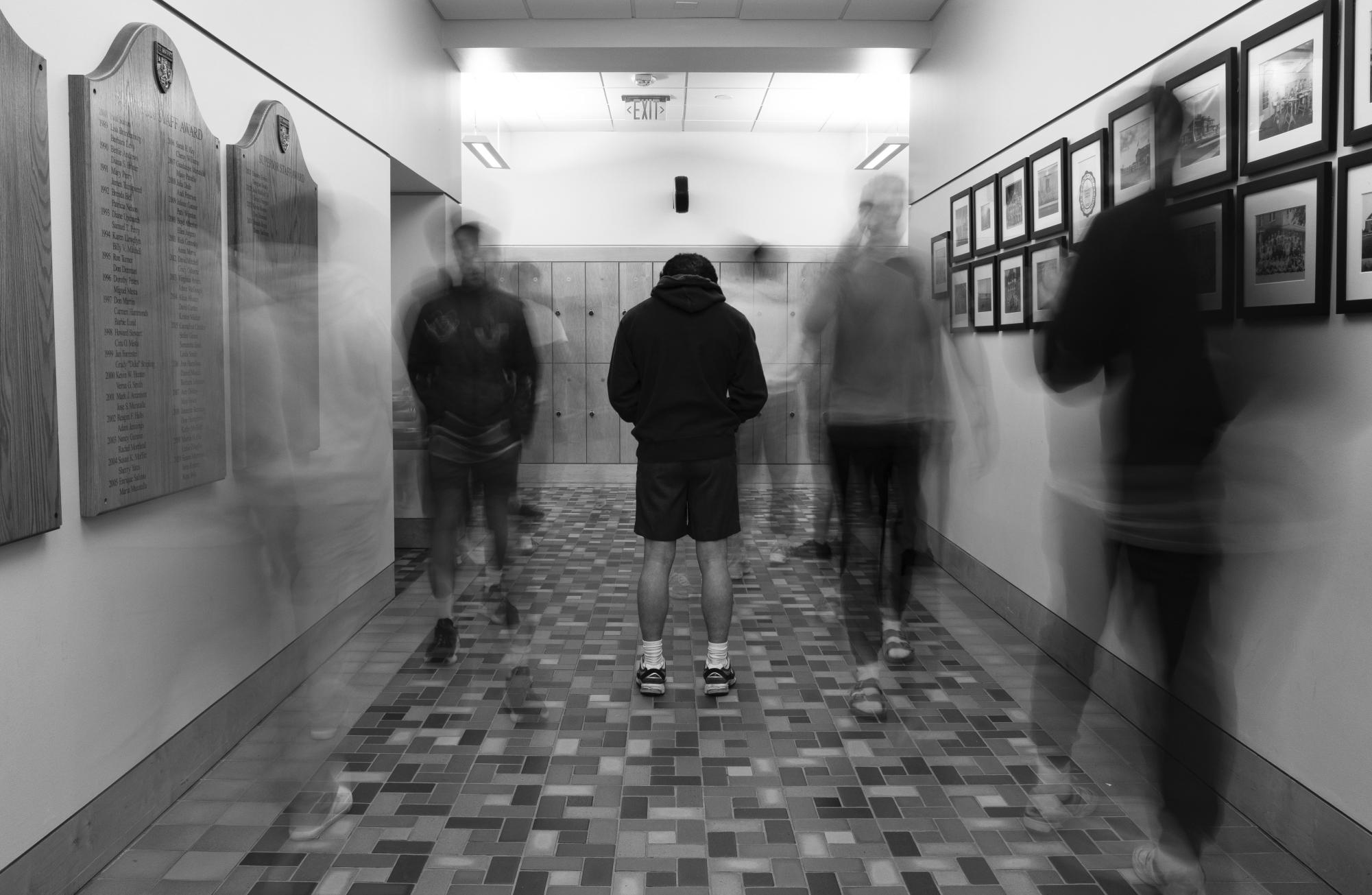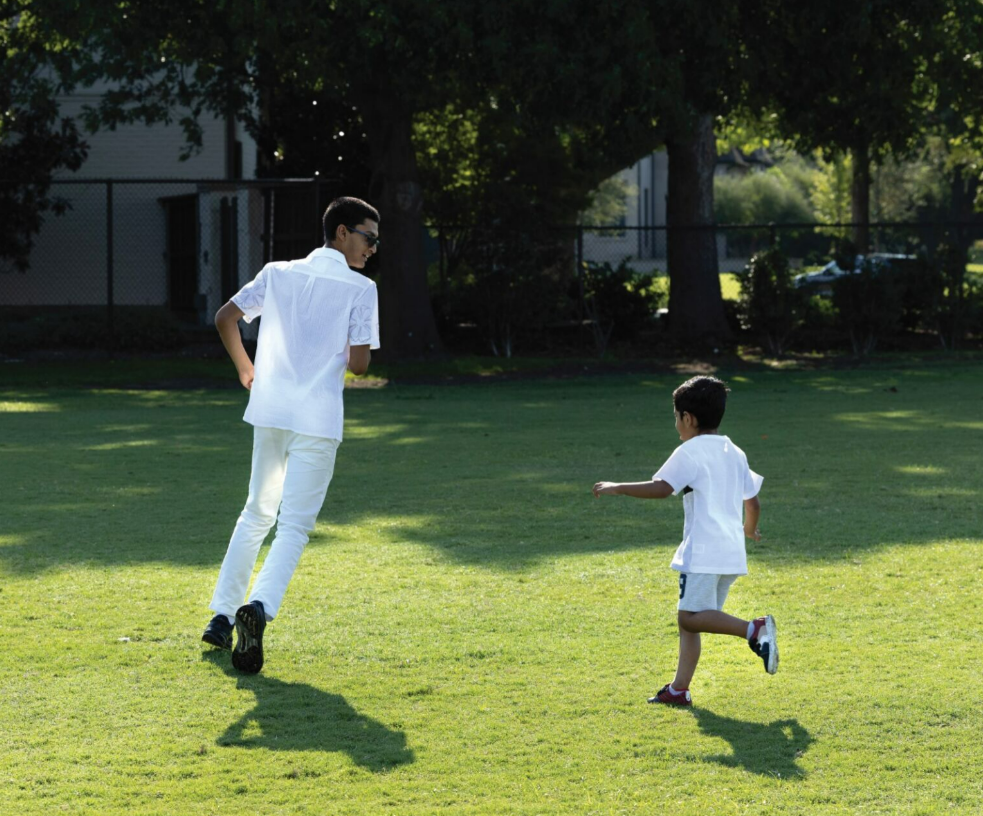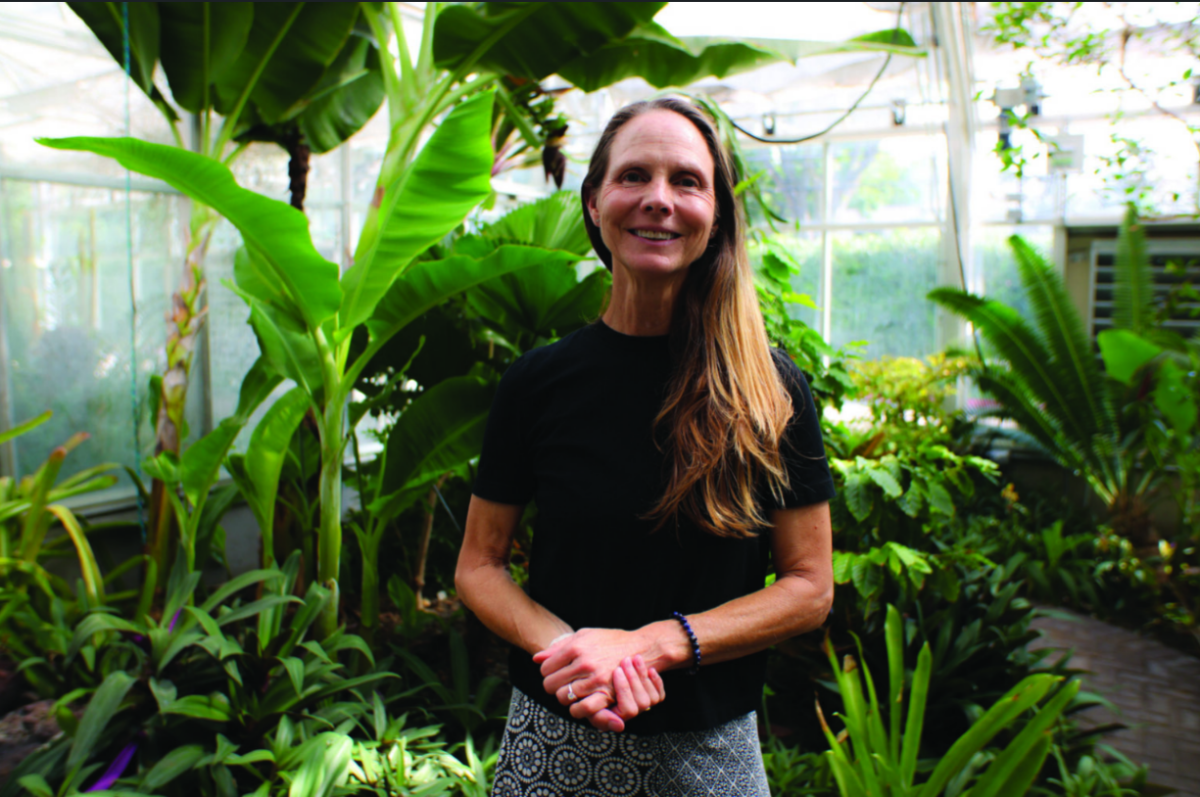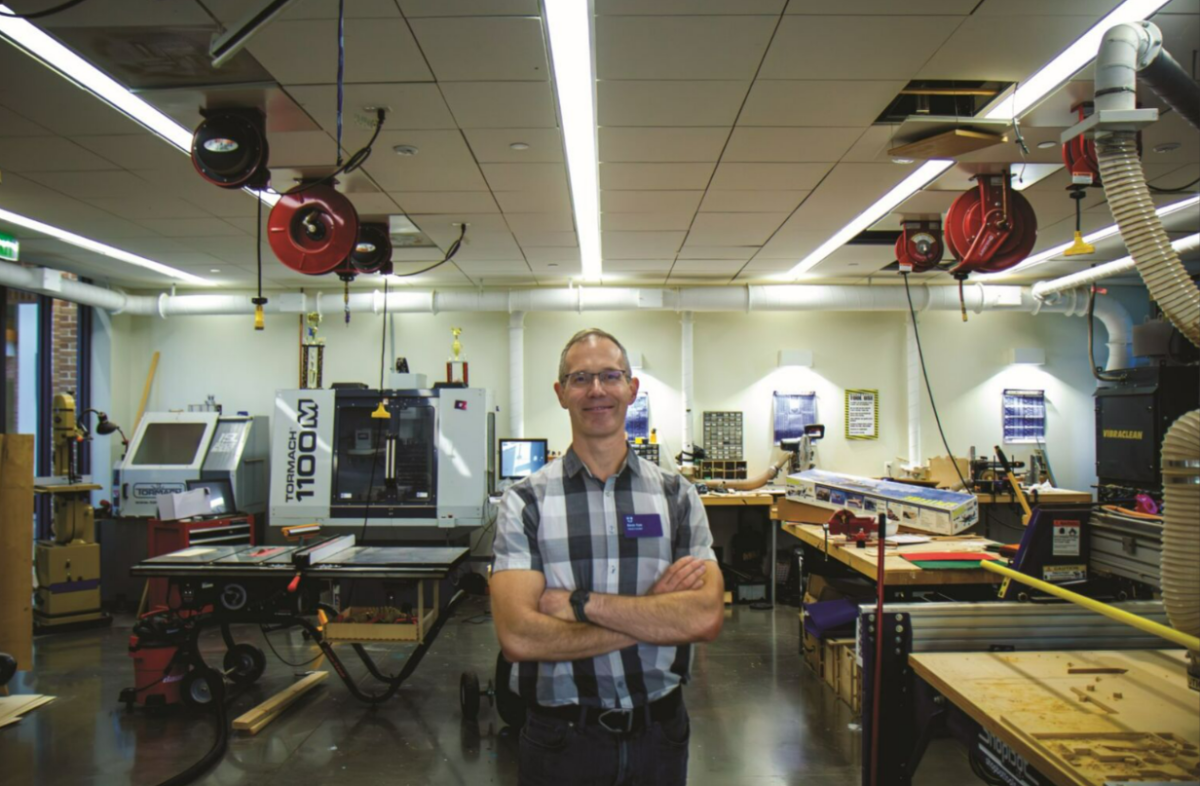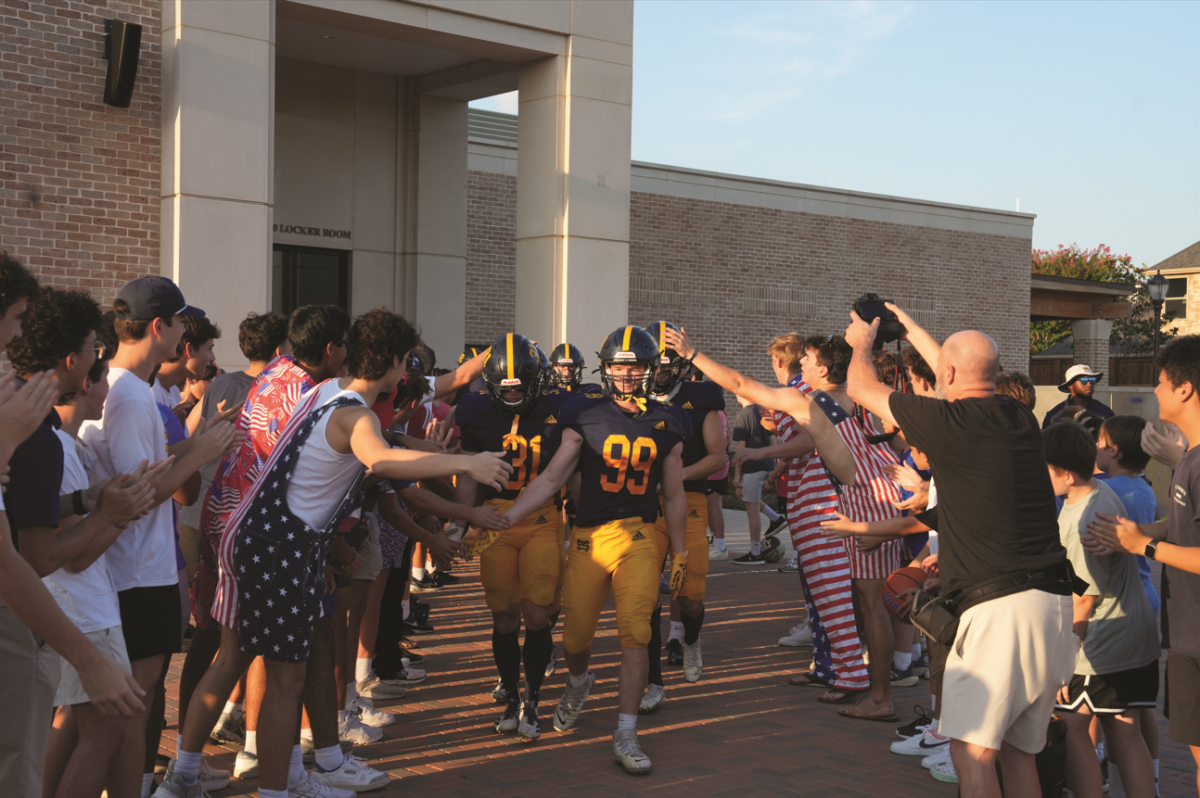Even through the phone, when you ask Rob Glass ‘72 to look back at his time here, you can hear from his voice how much fun he had.
Rappelling down the side of the A-frame chapel. Beating 6A public schools on the soccer field. Being named MVP his senior year.
He has so many great memories with his group of four friends, too.
Studying in the library together. Going to Brownsville one spring break together.
Glass still has the 16 millimeter black and white films they made together.
But looking back now, more than 50 years later—those relationships were thinner than the ones he’s got now.
They weren’t as deep.
For many young men, though, finding a group of friends to begin with—let alone solid, deep connections—is difficult.
A new analysis of social trends reveals a significant increase in loneliness among boys and young men over the past three decades, with technological and social changes driving the shift.
According to research by Richard Reeves in “From Boys to Men,” the percentage of men reporting no close friends has increased from 3 percent in 1990 to 15 percent in 2021. Among high school boys, loneliness has also grown substantially, rising from 28 percent in 2000 to 35 percent in 2019.
And here, even at a school with so much emphasis on community, so many of us aren’t immune.
So many are alone.
Upper School Counselor Dr. Mary Bonsu notes that feelings of loneliness can be amplified during the winter season.
“The clinical term is Seasonal Affective Disorder (SAD),” Bonsu said. “It boils down to our relationship with the sun. Sunlight plays a huge role in regulating our circadian rhythms, which, in turn, governs our sleep and impacts our mood. So the less light we get, the more challenging it is for us to manage our moods. If you’re not intentional about getting more light during these winter months, it could start to weigh on you. It just compounds.”
But across the seasons, researchers point to technological changes as a key factor of increasing feelings of isolation. The widespread adoption of smartphones and online multiplayer video games in the late 2000s and early 2010s has dramatically altered social interactions for young men.
Jonathan Haidt, in “The Anxious Generation,” describes this as a “mass psychological change” that coincided with increases in depression, anxiety, self-harm, and suicide rates among boys. Traditional friendship formation through group activities like sports teams has been increasingly replaced by virtual communities.
“There are some people who have been able to really share in depth about a niche interest (online),” Bonsu said. “Some of their best friends exist online, and those relationships do allow for a little bit more sharing because of the asynchronous nature of being online. There could be a lot of depth, exploration and continuity with that. But if you’re getting online to disconnect from people, with no intention of connecting—whether it is scrolling, gaming or just sending selfies, you’re not going to foster relationships.”
Glass agrees and believes connection is best fostered through face-to-face interaction.
He doesn’t like social media much. To him, it’s terrible for our society as a whole.
“You can stay on your phone or computer and never see another human being and, my goodness, that’s lonely,” Glass said. “I just don’t like social media. Can you find a friend through it? Sure. A blind squirrel finds a nut every now and then.”
In Reeves’ book, he argues that if virtual communities were truly effective at building friendships, today’s young men would report more meaningful connections.
Instead, the data shows the opposite: boys are increasingly isolated, often relying on online interactions as a default mode of connection.
Senior Wyatt Loehr noticed this disconnect and figured just removing himself from social media would help fix it.
“The more you stalk other people’s Instagram and Snapchat and check everyone’s stories—every day you’re going to see more people doing stuff, but you need to realize that’s not realistic,” Loehr said. “That’s not what their lives are really like. I think a lot of people have bad expectations for how often they should be seeing friends or doing things outside of school. Staying off social media can help that.”
Social media use around the holidays increases substantially for students unwinding with no work over a break. And with students traveling during breaks or posting photos at fun holiday celebrations, feelings of loneliness are common. At a time when deep relationships with family and friends are front and center, the disconnect social media creates with busy holiday schedules can be self-isolating.
“It takes time to develop, to mature and to understand how to deepen relationships,” Bonsu said. “That comes with getting older, but it also comes with practice. So if we’re always busy, I think it lends to more superficial connections.”
The rising busyness of students—through academic demands, sports or extracurricular activities—has made building deep relationships more challenging. This busyness combined with social pressures from social media can lead to a fear of missing out (FOMO).
“There’s a lot of FOMO going around,” senior Wyatt Loehr said. “It’s when you’re just at home and there’s not really anybody you could ask to hang out or anything.”
For many seniors, these feelings of loneliness that riddled their early experiences of high school waned as they approached their last year at the school. This is a sentiment that Senior Jaden Ouyang reinforces.
“I’d say beginning of freshman year, especially in the previous years, I never really found a large group of friends,” senior Jaden Ouyang said. “I’ve definitely felt like I’ve been in a dark place and didn’t have anybody to turn to. But I’m glad that, now, that feeling has died down.”
Besides social pressures at school, both Loehr and Ouyang expressed that social media was a negative for self-image, leading to feelings of isolation. According to Loehr, people feel more lonely more often because seeing a large group of your peers out together and socializing naturally makes one feel left out.
“It seems like everybody else has more friends than you do, and it seems like everybody’s always at a concert or doing something more exciting than you are,” Loehr said. “It feels lonely a lot when you go a couple weeks in a row without seeing your friends.”
However, social media and FOMO only scratches the surface of isolation at an all-boys school. One of the deeper issue behind this loneliness is the stigma around being vulnerable at an all-boys school.
The Counseling office recognizes this, and credits this issue to the nature of boys education.
“I think it’s more common to teach boys how to build things, become leaders and all these other wonderful things,” Bonsu said. “But I think we’re leaving friendship out of the equation.”
Looking forward, Bonsu sees hope in community-building efforts.
“I think we can do a lot more to help students normalize the kinds of friendships that minimize loneliness,” she said. “There’s normal things like cliques that we’re never gonna get rid of, but I think there are also aspects of feeling lonely that we can. If you don’t fit in, if you haven’t found your people yet, I think we can offer some guidance. Finding ways for guys to feel connected within this community is a goal.”
To Glass, it’s a lot harder to just open up to someone and be vulnerable as a teenager.
“In high school, if you’re not afraid of what somebody else is going to think of you, I’m not sure you’re alive,” Glass said. “Because you’re battling and discovering who you are. You’re trying to figure out—where do I fit in? What’s my place? What’s God’s design for me?”
Glass thinks a lot of it has to do with not knowing as much. It’s harder to go deep with someone else without being very deep yourself.
But even as you grow older—Glass believes we’re never immune from loneliness. But there’s rational things he thinks we can do to get out of it.
“Stop looking inwardly,” Glass said. “Do something for somebody else. Find somebody else that needs something that you have and help them with it. It’s cliché, but if you need friends, be friendly.”
To Michael Minzer ‘68, being lonely is just part of life.
The loneliness of being at a new school in freshman year, with no friends.
Of starting college. Grad school. Law School. Medical School.
Of starting and finding work and a career.
Of becoming a young parent—and being scared—sucked into a whole new social milieu with parents of other children. A whole new social life—revolving around the children and their development.
Of becoming an empty nester when the kids leave.
Of being old. Seeing people around him pass away.
But, for Minzer, wallowing in that loneliness isn’t part of life.
“We’re not hardwired to be alone,” Minzer said. “We’re hardwired to feel loneliness and get motivated to get out there.”
Whenever he’s ever been down in his life, he’d cure that feeling by trying to engage in some creative activity—start a new project and keep it in front of him.
Like when his creative partner of 25 years passed away unexpectedly from COVID—it could have stopped him from continuing to produce records for his record company he founded all the way back in 1985.
But creating music and art has always been a passion of his.
And because of his close connection with his creative partner—he soon found a community of people who all had been connected with his creative partner, and they helped him keep on pursuing his passion.
And through that—he was able to get out of that slump.
But it took work.
To him, it’s all work. Getting out of loneliness is work. Life requires work.
“Keep working,” Minzer said. “Get used to it. Don’t make university some party rest stop. Once you’re out of college, the party’s over. School’s out.”
In his opinion, the work necessary to find relationships lies in building yourself up. In becoming someone that other people want to get to know.
“You don’t find yourself—you make yourself,” Minzer said. “This is key. It’s a lot easier (to find connection) when you put in that effort to have something to offer. In any interaction, I have to ask myself, ‘What do I have to offer?’”
Glass agrees that building relationships requires work.
“It can’t just be having a conversation,” Glass said. “You’re going to have to plan some activities out—things that you enjoy doing with other people.”
And it can’t just be doing activities, he says. If you really want to develop a relationship, he believes you’ve got to be open and honest with each other.
“If you’re honest and open with somebody, there’s a good chance they might be honest and open with you,” Glass said. “But you both have to want the relationship. You can’t be friends with somebody who doesn’t want to be a friend.”
And, ultimately, having spent so much time building his connections with others—like his wife of 50 years—Glass’ life is filled with deep connections.
“I’m busy,” Glass said. “I’m doing. I’m believing. I’m active. I live by faith. I’m not lonely. Haven’t been in a long time.”
Lawrence Gardner contributed to this story.

